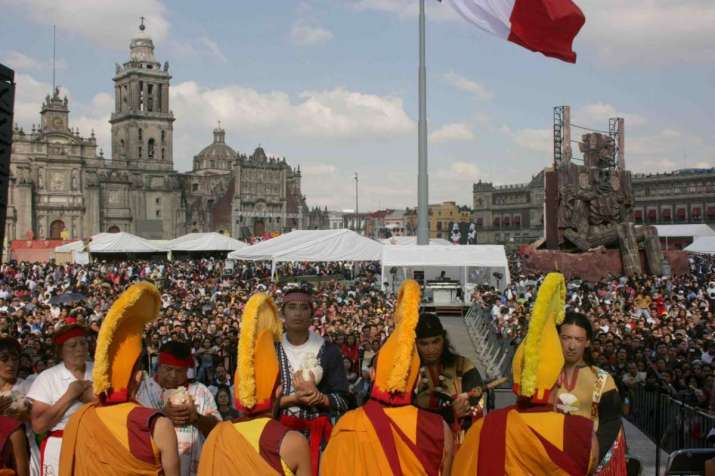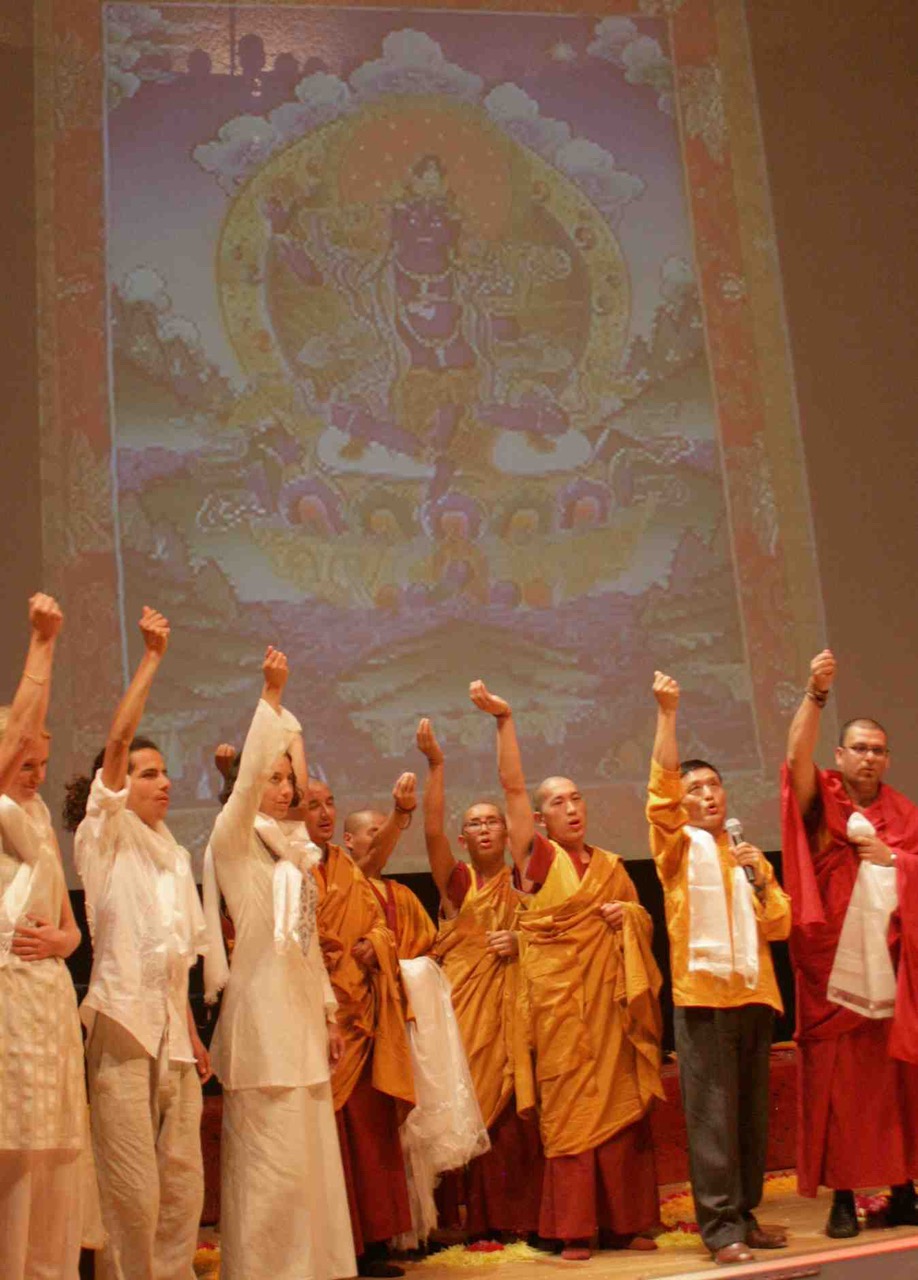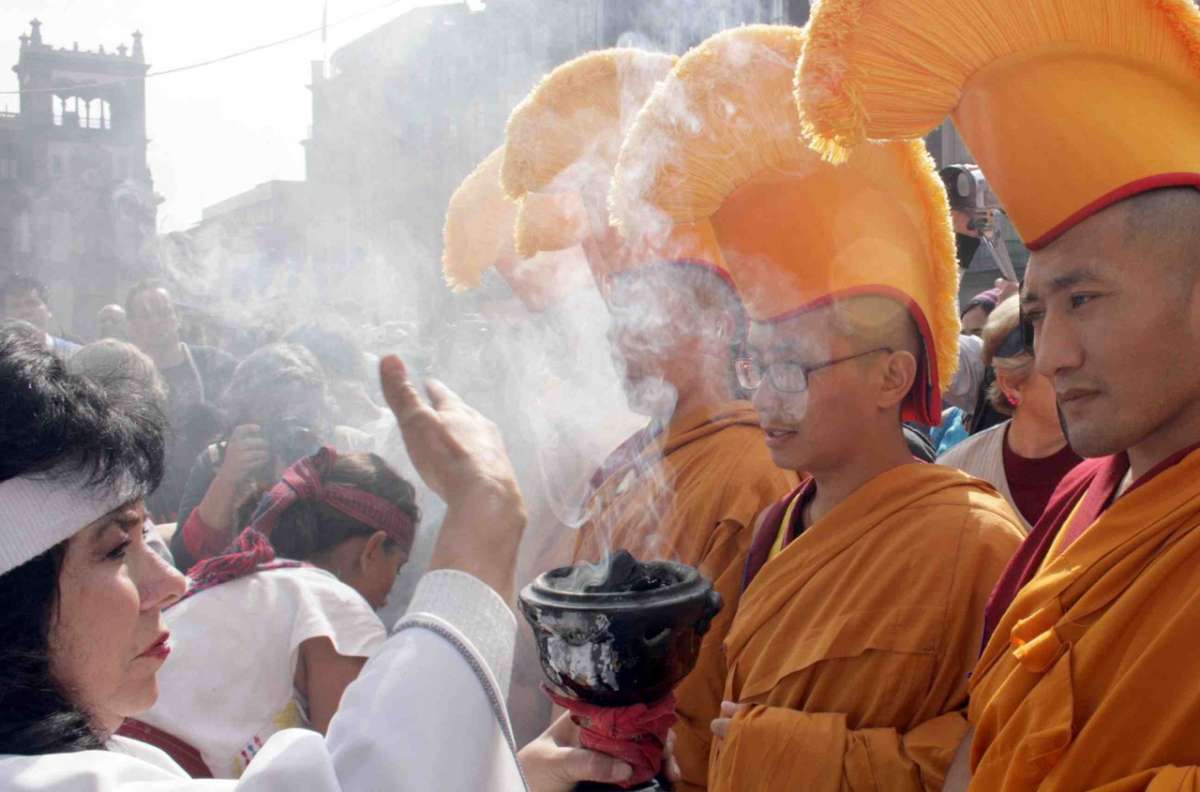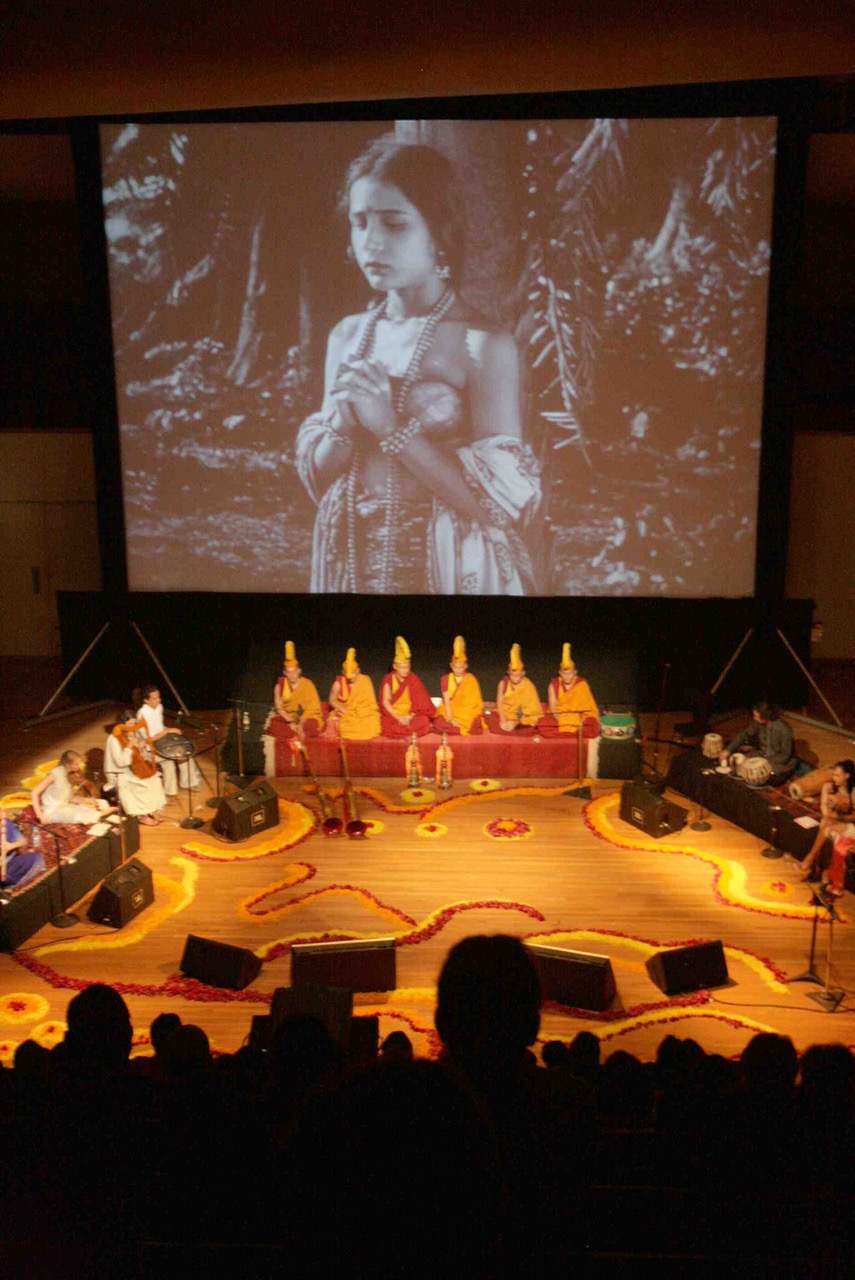
Film producer and international film festival organizer Gaetano Kazuo Maida is the executive director of the Buddhist Film Foundation (BFF). He is a founding director of the Buddhist quarterly Tricycle and was producer/director of Peace Is Every Step, a film profile of Vietnamese Zen teacher and activist Thich Nhat Hanh, narrated by British actor Ben Kingsley.
In this interview, Maida talks with Buddhistdoor en Espanol and Buddhistdoor Global about 2020’s rapidly shifting contexts that have reshaped the world of Buddhist-themed filmmaking, along with recent losses affecting the Buddhist movie community.
Buddhistdoor en Espanol (BDE) and Buddhistdoor Global (BDG): This has been a difficult period for the BFF at a personal level, with the passing of several associates such as design director Milton Glaser and board member Steven Goodman. COVID-19 has also disrupted normal operations. How have things changed for the organization and its activities since the pandemic reached California?
Gaetano Kazuo Maida (GKM): Thank you for mentioning our colleagues and dear friends; our world isn’t the same without them—we have In Memoriam pages for both of them on our website. Certainly, the pandemic has transformed the landscape for all kinds of public events and services here (and elsewhere too, of course). Theaters, restaurants, clubs, cinemas, museums, and so on have generally been closed since March, now nearly seven months—more than a full season, and enough to put many of these enterprises and organizations at real existential risk. There have been many permanent closures already, especially restaurants, bakeries, bars, and independent movie theaters, and there will undoubtedly be massive business failures among the affected enterprises if the current restrictions remain in place through the end of the year as many here predict.
And tragically, as we speak today, there have been more than 1.5 million deaths worldwide and over 300,000 in the US alone! Stunning, sobering figures to contemplate and put things in perspective. Life is a gift and we will all gladly give up movies and theater and art and dining out for a short while if it will help save lives.
The International Buddhist Film Festival 2020 (IBFF2020) was planned for 4–21 June, to be presented at the Smith Rafael Film Center, a nonprofit cinema near San Francisco, where we held the US premiere of Khyentse Norbu’s Vara in 2015, and his Hema Hema, Sing Me A Song While I Sleep in 2017, among many other titles since 2005. There was a lineup of 11 premieres from eight countries, and we were disappointed that we had to cancel it, as were the filmmakers, of course. We were able to make available some of the films to the BuddhaFest/Tricycle Online Festival, which featured a number of Dharma talks, music performances, and seven films, all available online by subscription for eight weeks. The films for that Online Festival had been programmed by the IBFF and it was planned to follow on right after IBFF2020, but as it happened BuddhaFest was the only way to see some of our selected films here in the States.
We seriously considered creating an online version of IBFF2020, but decided against it for two reasons: first, several of the films we had selected were concerned about the possible erosion of the commercial value of their films if they had streamed online, and this concern is not without merit. Many film distributors here and in Europe withheld most of the films that had been scheduled to launch theatrically this year, and did not permit any streaming presentations except what are known as PVOD (“premium video on demand,” like Disney’s Mulan for US$29.99, or several other new films at US$16.99–19.99), or “virtual cinema,” a revenue-sharing arrangement with local cinemas where typical theater ticket prices—US$10–15—were charged to stream a film at home. The second reason was simply that we didn’t think we could create, in the short timeframe available—less than 50 days at that point—a cinema and festival experience of which we and our participating filmmakers, not to mention our audiences, could be proud.

BDE/BDG: Tricycle’s BuddhaFest Online Film Festival and the Singapore-based Thus Have I Seen (THIS) Film Festival were both held online. How has the pandemic affected Buddhist film festivals overall?
GKM: IBFF has been programming the films for BuddhaFest since their first event in Washington, DC, in 2010 and every year since—they relocated to Los Angeles five years ago. At first, BuddhaFest was a live three-day event, with Dharma talks, workshops, meditation sessions, music performances, and films. A few weeks later, the collection of video documentations of the presentations and the films were available by paid subscription for a number of weeks online. This year there was no live event, of course, but the program material was the same. We were delighted to see the THIS Film Festival in Singapore take on the challenge of mounting an entirely online version of their festival, and we enjoyed their program. We hope this year’s event was a big success for them.
The raison d’etre of IBFF has been since our founding in 2000 to “bring to general audiences outstanding films with Buddhist subjects, settings, characters, or implications,” and that hasn’t changed under the current circumstances. What has changed, and perhaps has been altered for the foreseeable future, is the means. The truth is that live events are limited to the geographic location of the venues, while an online event, theoretically, if permissions from all participants are available, can be accessed by audiences wherever there’s good internet service. Viewers have become acclimated to experiencing films and music and episodic programs via their internet-connected devices, and have come to expect instant, easy, and affordable—if not free—content. We are considering our options for IBFF2021, though the real hope is that the pandemic will pass before next June.

BDE/BDG: Could you tell us about the Buddhist Film Channel and how you aim to make it a destination for aficionados of quality Buddhist-themed cinema?
GKM: Quite apart from our film festival, we have been designing and developing our own video-streaming platform, Buddhist Film Channel, for a few years now. This undertaking grew out of the convergence of three key motivating forces: one, our recognition of the need for an accessible archive for the type of films—from 22 nations so far—we’ve been presenting for 20 years at our festivals and with various institutional partners; two, the rapid obsolescence of DVD and the resulting winding down of our very successful North American DVD distribution service, Festival Media; and three, the revolutionary advent of widely available broadband internet access, along with the huge success of such players as Netflix, Amazon Prime, Hulu, and Disney, and the relative success of niche players such as Criterion Collection, Mubi, MhzChoice, Brit Box, Ovid, Acorn, IFC, and many others.
All three forces combined to suggest that the time was right, the elements were right, and, given our experience, we were the right organization to take this on. We currently have a temporary welcome page, inviting viewers to sign up for email updates and offers, and we continue to fundraise to establish BFC as a sustainable international streaming resource for Buddhist cinema. I should note that we have decided to make BFC a for-profit subsidiary of the nonprofit Buddhist Film Foundation because we don’t want to burden the donor community in this time of great need around the world, for example because of the climate crisis, hunger, refugees, racial injustice, as well as economic, educational, environmental, and human rights issues, and so on. So we are inviting investors who wish to participate in future profits, although we are certainly mindful of the limits of this type of enterprise—it’s not going to be the next YouTube, that’s for sure!
BDE/BDG: Buddhism is becoming increasingly prominent in Hispanophone regions of the world. Do you have any plans to reach out to Spanish-speaking viewers of cinema and Buddhists?
GKM: Frankly we hadn’t been thinking about working with audiences beyond the cosmopolitan sites of our first festivals (LA in 2003, Washington, DC, in 2004, San Francisco in 2005, Amsterdam in 2006, and Singapore in 2007) when I received an unsolicited invitation in 2008 to travel to Mexico City and assess the possibilities for an IBFF there. I must say that I was openly skeptical, having traveled to various parts of Mexico since the 1970s and remembering Mexico City as seriously and hazardously polluted. My host, a senior student of Tenzing Wangyal Rinpoche, who is a friend of mine here in California, was gently persuasive and I soon found myself in the new Nikko Hotel in Mexico City, admiring the clean streets and air, and the new restaurants and art galleries. The factor that finally convinced me, however, was a gathering where he arranged for me to speak with some of the leaders of the Buddhist community in the city and I found myself introduced to representatives from 25 Buddhist groups on less than a week’s notice! If I had tried to do that in San Francisco I would have been very disappointed, believe me!

IBFF2008 Mexico City was a big success: 24 films translated into Spanish and subtitled, screenings for 10 days in five theaters, including the Cineteca Nacional, and an opening ceremony in the Zocalo, the central plaza, attended by 50,000 people, where six Gelugpa monks chanted for peace while six Mexican shamans blessed them with smoke and prayers.
We had presented and distributed in the US one film that originated in Spanish, Un Buda, a dramatic feature by the late Diego Rafecas from Argentina, with some success. Interestingly though, that film did not find an audience in Mexico for some reason. We have a lot to learn about Hispanophone audiences and we are keen to focus on this as BFC becomes a reality. And let’s not forget Brazil! We welcome new Buddhist films in Spanish and Portuguese and hope to see more soon.
BDE/BDG: Have you watched any films recently that have contemporary resonance in 2020?
GKM: The short answer is yes, many. I’m an avid consumer of all kinds of cinema from all over the world, but few of which were in any of the Buddhist film festivals. This is partly because movies take a lot of time and money to produce, and completed projects, especially in the relatively non-commercial Buddhist arena, tend to have their origins a few years ago. I expect to see some new films starting next year that have been touched, motivated, and possibly determined by the extraordinary events of this year—and it’s not over yet!
See more
Buddhist Film Channel
International Buddhist Film Festival 2020 Official Selections (Buddhist Film Foundation)














